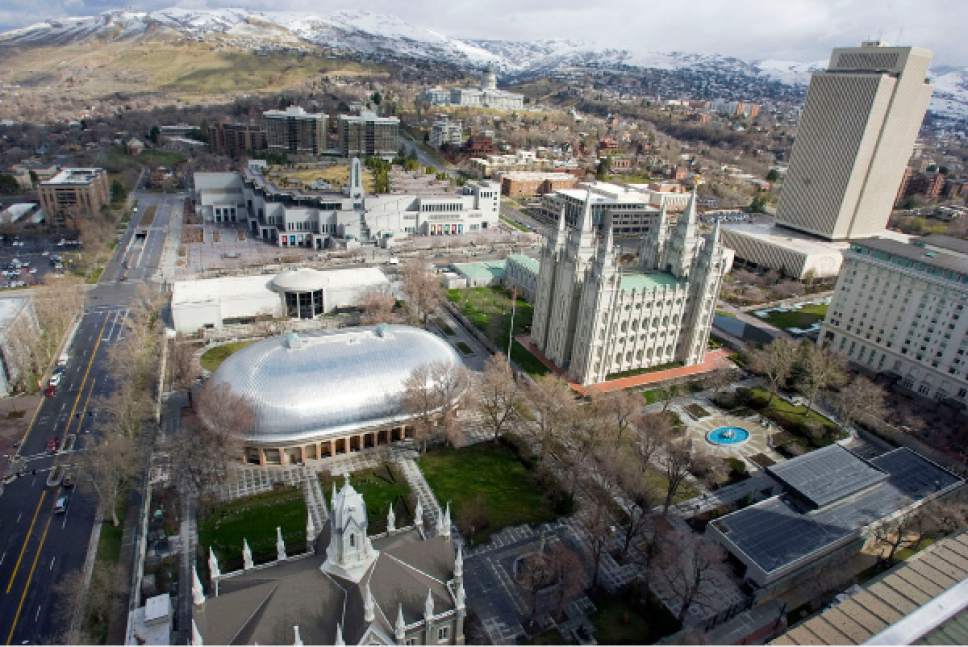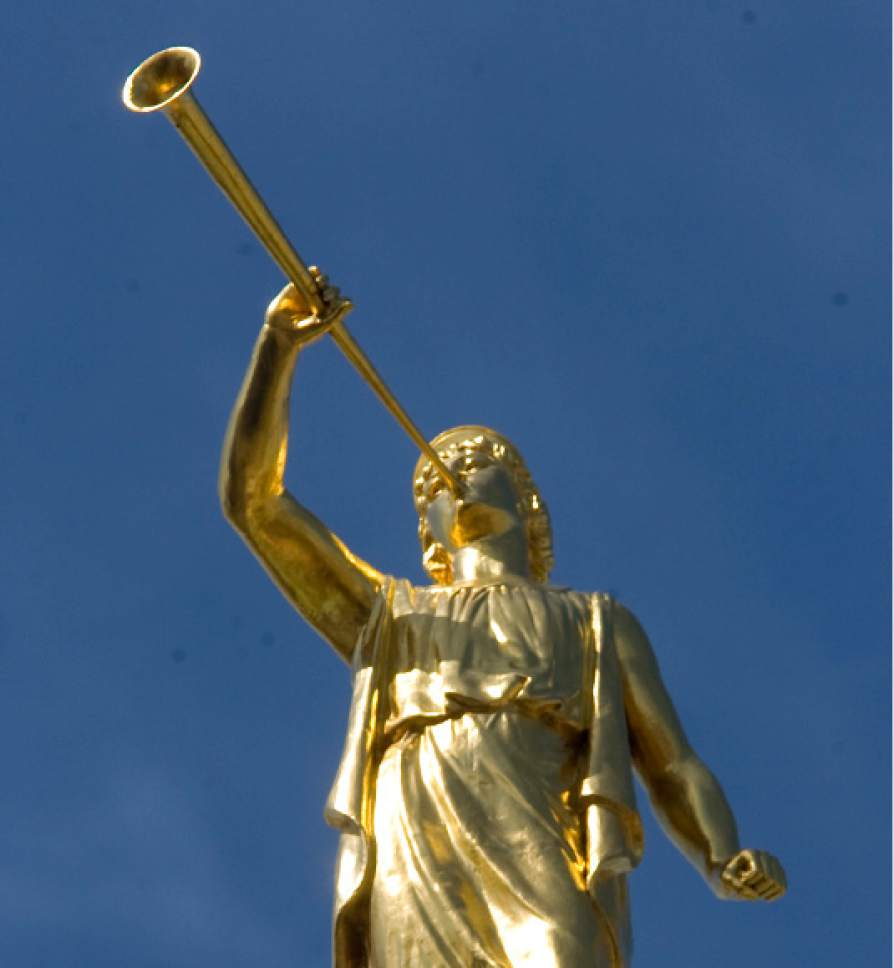This is an archived article that was published on sltrib.com in 2017, and information in the article may be outdated. It is provided only for personal research purposes and may not be reprinted.
President Donald Trump's latest executive order may give tax-exempt religious organizations the green light for greater political involvement, but don't expect the LDS Church to shift gears.
Utah's predominant faith likes being in neutral.
"We are always grateful for the efforts of leaders to safeguard religious freedom and protect the beliefs and religious exercise of all people," church spokesman Eric Hawkins said in a statement Thursday. "The Church of Jesus Christ of Latter-day Saints has been and remains committed to political neutrality. Today's executive order will not affect that longstanding policy."
The LDS Church maintains a neutral stance in partisan matters, saying it "does not endorse, promote or oppose political parties, candidates or platforms" and noting that individual Mormons "may have differences of opinion" in such cases.
The faith says it does, however, "reserve the right as an institution to address, in a nonpartisan way, issues that it believes have significant community or moral consequences or that directly affect the interests of the church."
Trump's directive, telling the IRS to ease up on enforcing rules that bar tax-exempt churches from electioneering and partisan endorsements, won't change the Catholic approach to politics, either.
"We encourage all parishioners to prayerfully and thoughtfully discern their own voting decisions, guided by the principles of Catholic social teaching," said Susan Dennin, spokeswoman for the Diocese of Salt Lake City.
Sounding off about politics generally "is very different than endorsing one politician over another," said Imam Shuaib Din of the Utah Islamic Center in Sandy. "Many places of worship already speak on politics or government policies."
These places should not be "directly involved in encouraging their congregants to vote one way or the other," he added. "Isn't that the reason we are tax exempt? Places of worship should be allowed to choose tax-exempt status and political neutrality or pay federal taxes and be as red or blue as they want to be."
Trump's order, which even some religious advocates see as murky, also urges federal agencies to explore new regulations that could pave the way for religious groups to avoid paying for contraceptive coverage under President Barack Obama's Affordable Care Act — an ACA mandate that already has been limited by the courts.
Planned Parenthood Association of Utah views such a threat as dangerous.
The decree "is not about protecting religious freedom — it is a direct attack on women's access to birth control," the group warned in a statement, "and could allow bosses to prevent employees from having access to birth control and other critical preventive care."
"Women's ability to access basic health care should not be up for debate," the statement continued. "A woman's reproductive health care is between her and her doctor — not at the discretion of her boss or politicians."
Equality Utah described the order as "intentionally vague."
The LGBTQ group fears "the Department of Justice will no longer support regulations banning discrimination against transgender individuals in health care," Executive Director Troy Williams said. "This would be devastating to members of our community who already have difficulty accessing lifesaving services."
These activists promised to "remain vigilant" to any possible discrimination, Williams said, and be "ready to fight back."
The left-leaning Alliance for a Better Utah cautioned that Trump's actions will erode the wall between politics and religion by undermining the 1954 Johnson Amendment, which prohibits nonprofit religious organizations from participating directly or indirectly in political campaigns.
"The Johnson Amendment is one of the pillars supporting the principle of separation of church and state enshrined in our Constitution," Chase Thomas, the organization's policy and advocacy counsel, said in a news release. "To see this First Amendment protection being chipped away in this manner is extremely concerning."
The advocacy group wants the White House to reconsider the order and urges Utah's congressional delegation to oppose it.
— Tribune reporter Bob Mims contributed to this story





